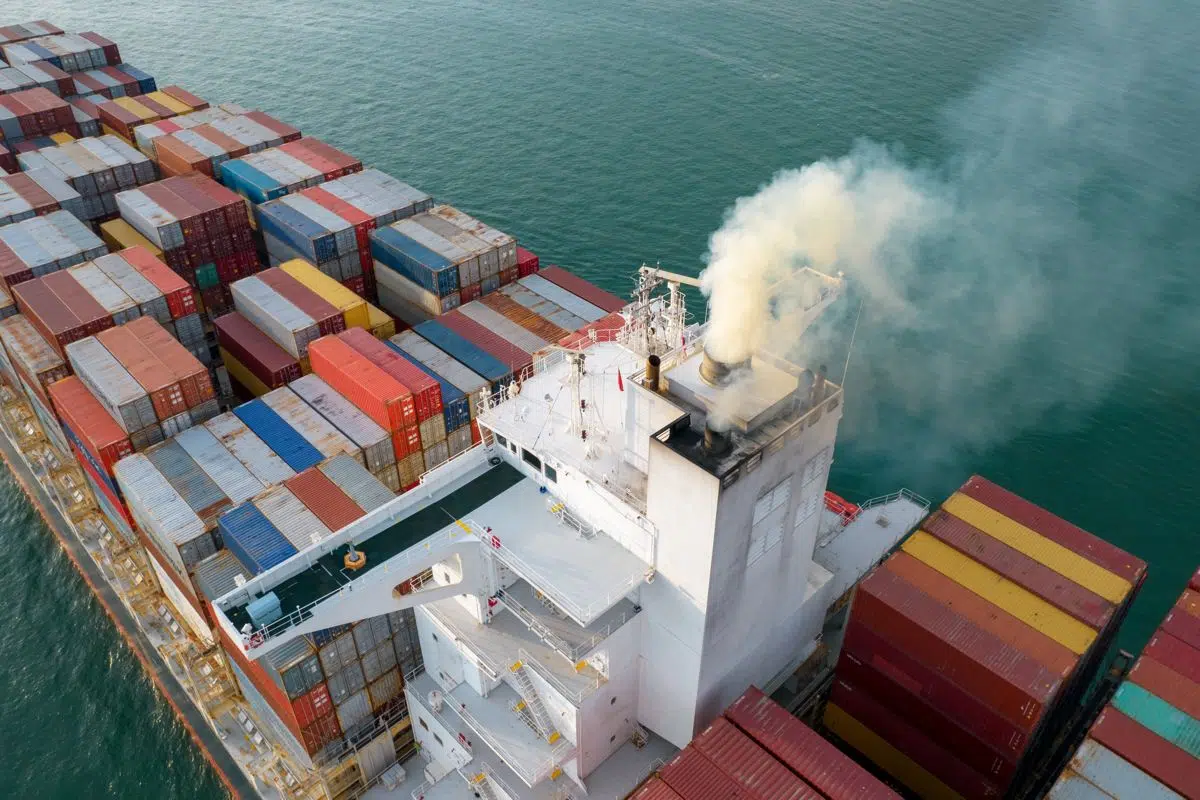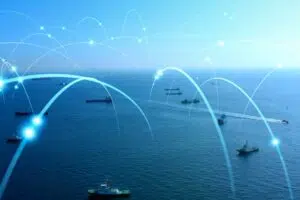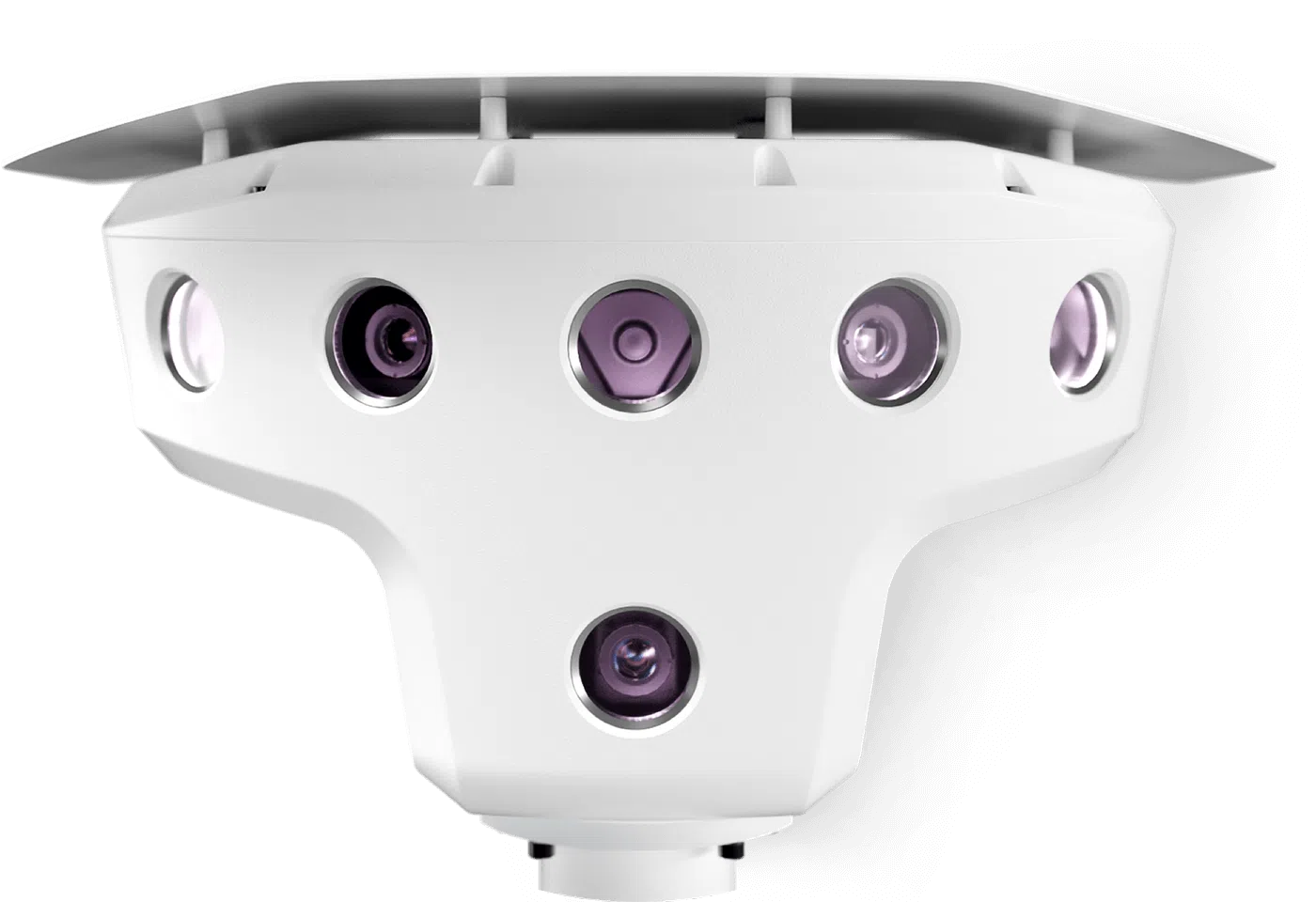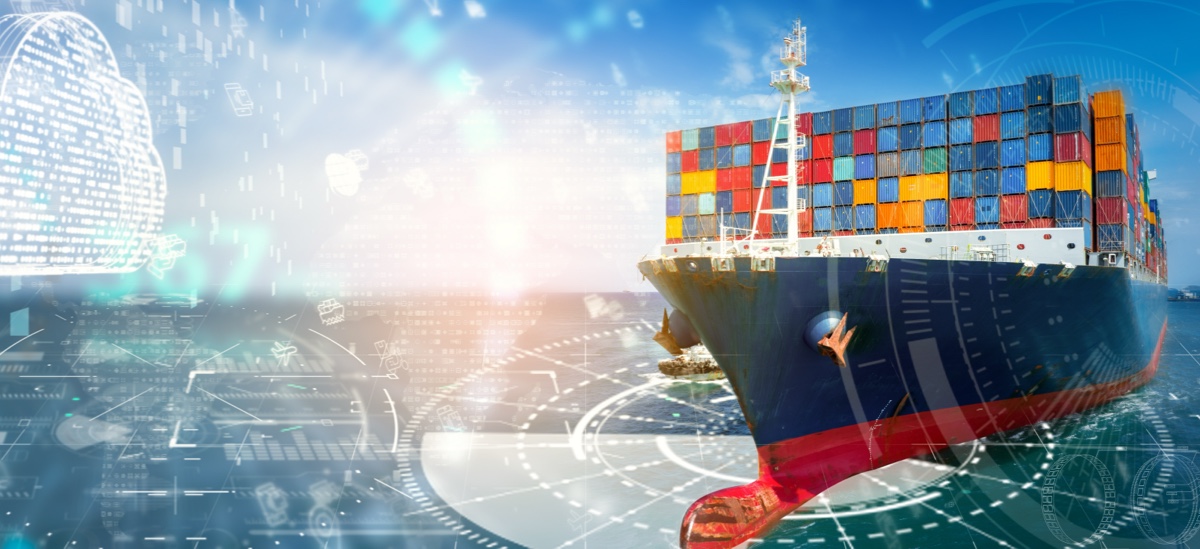The maritime industry, a significant contributor to global greenhouse gas emissions, faces increasing pressure to enhance efficiency and drastically reduce its carbon footprint. The International Maritime Organization (IMO) has set stringent targets: aiming for a minimum 40% reduction in CO2 emissions per transport work by 2030 and a 70% reduction in GHG emissions by 2050 compared to 2008 levels.
However, recent insights from the Sea Cargo Charter (SCC), representing a substantial portion of global bulk cargo transport, reveal a stark reality. In 2023, the sector fell short of these targets by 17%, resulting in an emissions gap equivalent to 165 million metric tonnes of CO2e. The SCC emphasizes the urgent need for innovative strategies, such as AI-driven voyage optimization and navigation systems, to bridge this shortfall. As the industry strives to meet these ambitious decarbonization goals, the role of digitalization, enabled by enhanced connectivity, has emerged as a crucial driver within the maritime sector.
Digital solutions for sustainable shipping practices
Digitalization serves as a cornerstone in the pursuit of decarbonization within the maritime industry. It offers innovative tools and insights that enable the transformation of conventional ships into highly efficient, low-emission vessels. A recent report by Thetius indicates that digitalizing ship operations alone could potentially lead to reductions in carbon emissions of up to 38%. By leveraging AI-based voyage optimization and navigation systems, stakeholders can drive significant reductions in greenhouse gas emissions while maintaining operational efficiency and competitiveness.
Fuel efficiency by voyage planning
Efficient voyage planning can be revolutionized by advanced fleet management systems leveraging real-time data on weather, sea conditions, port congestion, berthing availability, and scheduling to minimize idle time and maximize operational efficiency. These systems, incorporating IoT, satellite communication, and analytics, empower shipping companies to chart the most fuel-efficient routes, resulting in significant reductions in greenhouse gas emissions, thereby minimizing environmental impact and operational costs.
Carbon tracking and reporting
In the era of regulatory changes mandating carbon intensity indicators, real-time data streaming technologies have emerged as essential tools. They enable continuous monitoring of vessel operations and to set and track emission reduction targets transparently, fostering accountability and informed decision-making to meet sustainability objectives. A study by the World Maritime University (WMU) suggests that real-time data monitoring can help shipping companies reduce emissions more than traditional reporting methods.
Remote smart maintenance
Integrating IoT sensors and machine learning transforms maintenance practices, allowing remote monitoring of ship systems. Predictive analytics, facilitated by AI algorithms, enable proactive monitoring of equipment health and performance, minimizing downtime, and optimizing fuel consumption. This approach enhances operational efficiency while curbing unnecessary emissions associated with maintenance activities.
Facilitating alternative fuels usage
In addition to optimizing existing operations, digitalization is also facilitating the transition to alternative fuels and renewable energy sources in the maritime sector. Digital twin technology- based simulation tools and data analytics enable shipping companies to evaluate the viability of alternative fuels such as hydrogen, natural gas LNG, and biofuels. Moreover, advancements in renewable energy technologies, such as wind-assisted propulsion systems and solar panels, are being integrated into vessel designs to reduce reliance on traditional fossil fuels. According to a report by the International Renewable Energy Agency (IRENA) , the widespread adoption of alternative fuels and renewable energy sources could potentially lead to emissions reductions of up to 50% by 2050.
Promoting autonomous ships development
AI-driven situational awareness systems and predictive analytics accelerate the development of autonomous vessels, powered by renewable energy sources. These technologies optimize routes, enhance safety, and reduce fuel consumption, contributing to a more sustainable maritime industry with significantly reduced carbon emissions.
In order to decarbonize, connectivity is essential
Maritime connectivity acts as a vital backbone for the sharing of real-time data and optimization efforts within the industry. By enabling seamless communication between vessels and on-shore operations, satellite connectivity empowers digital solutions aimed at reducing the carbon footprint of the maritime sector. As today’s crews are increasingly young, with captains typically aged between 33 to 35 years old, the reliance on on-shore support has risen sharply, underscoring the critical need for robust connectivity.
However, the absence of strong connectivity infrastructure poses numerous challenges to digital solutions aimed at decarbonizing the maritime industry, such as delayed decision-making, limited data exchange, and underutilization of advanced technologies. For example, big data analytics for route optimization, essential for reducing fuel consumption and emissions, suffers from a lack of real-time visibility without robust connectivity.
In contrast, with strong connectivity infrastructure, crews can receive real-time recommendations for optimal routes, allowing them to make prompt adjustments and take advantage of favorable conditions while avoiding congested or dangerous areas. Additionally, on-shore operations teams gain visibility into the ship’s course of action, enabling them to offer guidance and support as needed. In conclusion, robust connectivity infrastructure is crucial for digital solutions to address environmental challenges and optimize the maritime industry’s efficiency.
The future of decarbonization and digitalization in maritime
Industry evidence highlights the transformative impact of connectivity-enabled digitalization on advancing decarbonization efforts. Orca AI’s analyses underscore how AI-driven technologies can revolutionize maritime sustainability and operational efficiency. A comprehensive study, analyzing data from over 50 million nautical miles of global commercial vessel operations, reveals that implementing AI for real-time decision-making during navigation could lead to an impressive 172,716-tonnes reduction in global CO2 emissions annually. This achievement stems from AI’s ability to enhance situational awareness, minimizing the need for last-minute maneuvers and route deviations, thereby optimizing fuel consumption and generating substantial savings. Additionally, an analysis from 267 customer vessels equipped with Orca AI platforms further substantiates these findings, demonstrating potential annual savings of approximately $100,000 per vessel in fuel costs through optimized navigation routes and reduced travel distances.
The journey towards decarbonization in the maritime sector involves complex variables, necessitating a shift in technology, operations, and the adoption of alternative fuels. Sustainable practices not only reduce carbon footprints but also enhance competitiveness and foster innovation for environmental and economic benefits. Looking ahead, the convergence of decarbonization and digitalization will drive the maritime industry towards carbon-neutral operations. This will involve efficient voyage optimization, predictive maintenance practices, and real-time emission monitoring, paving the way for the gradual adoption of complete maritime autonomous navigation systems. Throughout these digitization processes, connectivity will serve as an essential enabler, providing vital data insights and real-time information crucial for achieving net-zero in maritime operations.











